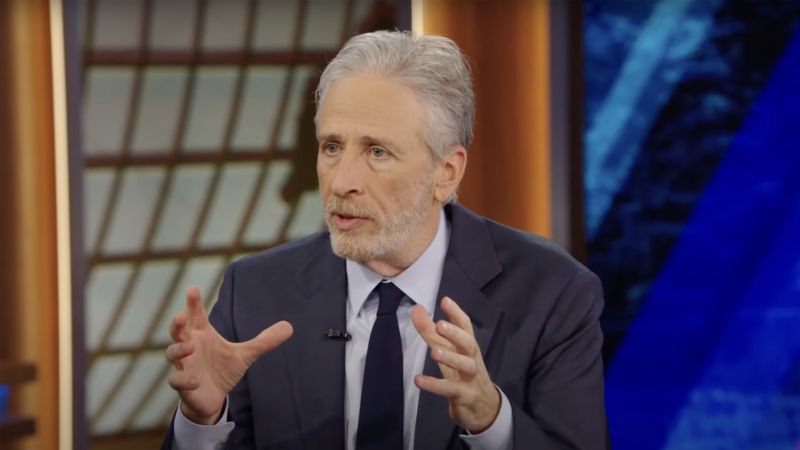Jon Stewart recently revealed on “The Daily Show” that his short-lived show on Apple’s streaming TV platform was canceled due to restrictions placed on him by the tech giant. Stewart said that Apple prohibited him from discussing artificial intelligence or interviewing Federal Trade Commission chair Lina Khan, who was a guest on his Comedy Central program. This came after the US Justice Department and several states sued Apple for illegally monopolizing the smartphone market, sparking a conversation on Big Tech monopolies on Stewart’s show.
Stewart shared that he had his own disagreements with Apple, as the company asked him not to have Khan on the show’s companion podcast. Additionally, Apple prohibited him from discussing AI on his show, despite addressing the topic in the first act of a recent episode. Stewart questioned Apple’s sensitivity to these subjects and the dangers of concentrating power in a few companies. Khan hinted at future tech regulations, revealing that the FTC and Justice Department are examining how companies use algorithms for price-fixing.
“The Problem with Jon Stewart” aired for two seasons on Apple TV+, but Stewart faced pushback from the company over planned subject matter for upcoming episodes, including discussions on China, Israel, and AI. While Apple gave him creative control over the show, Stewart expressed frustration at the company’s interference with guest lists and show topics. Despite the cancellation of his show, Stewart’s return to “The Daily Show” earlier this year was well-received, bringing back a sense of cultural relevancy to the program.
Stewart’s conversation with Khan shed light on the challenges of navigating relationships between media and tech companies, especially when it comes to discussing topics that may be sensitive or controversial. The implications of tech monopolies and potential regulatory actions were also highlighted during their discussion. Stewart’s experience with Apple reflects broader concerns about the power and influence of major tech companies in controlling public discourse and shaping narratives.
Stewart’s willingness to speak out against Apple’s restrictions and engage in conversations around important issues like AI and tech regulation demonstrates the importance of media independence and free expression. The ongoing debate over the role of tech companies in shaping public discourse and the need for transparency and accountability in their operations continues to be a critical issue. By sharing his experience, Stewart contributes to the larger conversation on the power dynamics at play in the digital age and the implications for media and society.


